AUTISM WITHOUT FEAR
BY MICHAEL JOHN CARLEY
There's a folktale somewhere about a wave that became increasingly upset as it came closer to shore because it didn't want to die. The wave behind it reassured it that yes, it would die, but that it would then go back into the greater ocean and somehow create more continuous waves. It's an allegory that resonates no differently than similar lessons told to us by major religions that guarantee afterlife; and therein, it's not a very unique story. Yet unlike the fables within sacred texts, and barring the implied consciousness within a moving curl, the story of the dying wave is rooted in secular knowledge.
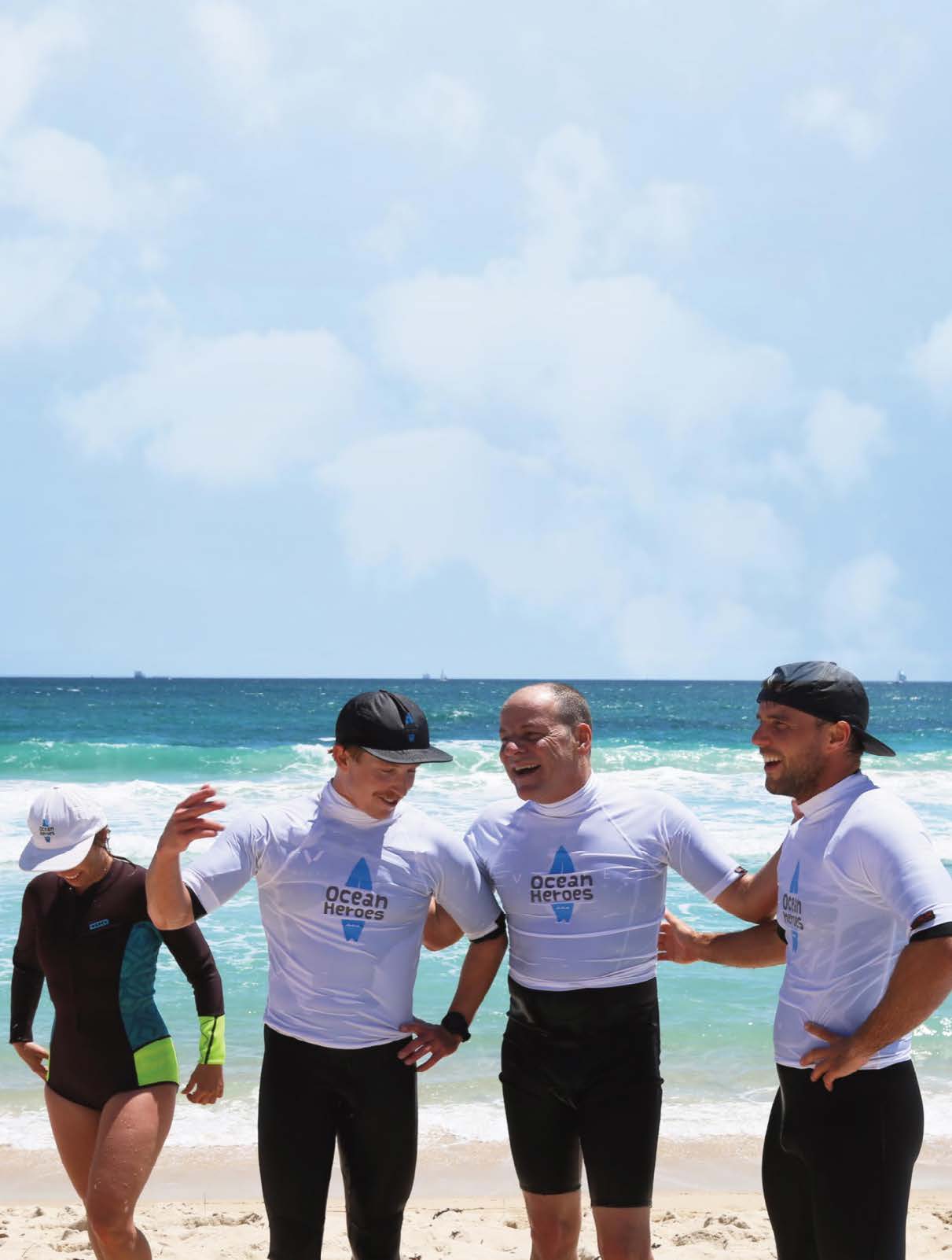
Call it neo-paganism, tree-hugging, or whatever you wish, but the comparison of natural forces as a substitute for written doctrine has been weighed by spectrumites and neurotypicals alike long before the Polynesians carved the first surf boards from sacred trees. It's a lovely, natural exercise. And this particular tale of the dying wave alludes heavily towards a belonging to life itself, rather than to limited, individual lives.
It's also a theoretical contest about an earth – not a heaven – that attracts our curiosity. For it's the oceans of this planet – not the terrain – that we still underestimate, even if by comparison we own less than half the globe's mass. Nothing in nature is a partisan world that screams for us, or our communities to "be" one way or another. Instead, all nature seeks balance – a word not to be confused with "moderation" (the latter concept having revealed itself as a more and more contrarian, if not cowardly, fallback). But while our forests and mountains give awe, they do not move, or intimidate our imagination as does the sea. This mammoth force, whose underwater pressure, if harnessed, could fuel cities (if not continents), is still one we fear admiring, if not also embracing. With so much of it still unexplored it is arguably our last frontier. Like love, the ocean is unstable, not stable, and dangerous. We who subscribe to no religious influence whatsoever can take comfort in our capacity, however unrealized, to employ the ocean's potential as a healing strategy. And in spectrumfolk run parallels herein such as the accumulated traumas that are often there, within us, deep, in ways in which no one understands. We have fears that are visible, and some that are not. It's hard on our side, as spectrumfolk, to even see this; and it's an even harder concept for the neurotypical world to swallow. A bridge is needed.
Cue the Ocean Heroes.
For many people on the spectrum, the enthusiasm of these autism surf people might initially feel threatening. At the starting gate, spectrumites, both non- and über-verbal, may find it impossible to rely on these sun-bleached salespeople, mouths curved upwards. For too often in our pasts, unconscious purveyors of snake oil remedies have asked for our trust, only to betray it through well-intentioned ignorance. These resentfully-named "beautiful people" may have invalidated the seriousness of what someone went through, causing that person, as time wore on, to shut off, and trigger more distrust whenever a new opportunity arose (to gain trust). Numerous times throughout our lives we may have faced such literal or figurative cheerleaders; those self anointed instructors who do not believe that we should be allowed to refuse their happy medicine, or who would wish to deny us the right… to not smile back. We sense superficiality. Somewhere, we also know that real depression, real anxiety, real anger, or real trauma can't be remedied by a makeover.
But the surfers are different. They just are. They, and the product/remedy/medicine they sell, are true, and brave, and powerful, and good. Our skepticism is thankfully no match for a persuasiveness so rooted in truth.
Recently in Perth to keynote the wonderful Autism West's wonderful 10th anniversary conference, I was given an offer I couldn't refuse. Western Australia's version of Surfer's Healing (CA), Surfer's Way (NY), and Surfers for Autism (FL) is called "Ocean's Heroes." They work closely with Autism West and they invited me out for a day. They knew from my writing both that I love surfing, and that I not-so-paradoxically stink at it. And with nothing asked in return, Ocean's Heroes were committed to making me better.
Background: I've actually gotten to try surfing in some gorgeous spots: Costa Rica; Todos Santos, Mexico, Morocco (where, in one of my few lifetime successes in standing on the board, I realized [right before wiping out] that I needed to leave GRASP), and Kauai, where I was almost decimated when a current sent me hurtling towards jagged rocks. In Taghazout, I once had private lessons; but despite instruction to the contrary, I still grab inappropriate-sized boards for my skill level, and head for the big waves, hoping to hit the lottery. I once half-joked to my wife that it was nice to know how I was going to meet my maker…
Look – long story Ocean Heroes is a charity set up by local West Australian surfers that aims to enhance the lives of those living with autism, through active involvement in the sport of surfing. Ocean Heroes combines compassion, skill and professionalism to provide children with a unique opportunity to experience the thrill of catching a wave. Visit oceanheroes.com.au short before I dissolve into poetica, is that of course Ocean's Heroes made me better that day. The board they trained me on felt as big as a cruise ship (easy to control), the waves were safe and easy, and they are fantastic teachers. I doubled my life's output in standing successfully, and for the first time reached shore by stepping off the board onto actual sand. But if my being a good student was the point of this article, I'd gag, and you'd gag. The point herein is that these people, in all these locales that perform this work, are special, special folks, and that their work is wonderful. The feedback I've always gotten from parents who've attended the seminars of all the orgs who provide this service – either on both coasts or abroad – has never been short of "my kid's addicted," "my non-verbal son learned how to trust," "my daughter who has crippling anxiety was liberated." I have never heard a negative experience with an autism surfing organization.
Ocean Heroes is a charity set up by local West Australian surfers that aims to enhance the lives of those living with autism, through active involvement in the sport of surfing. Ocean Heroes combines compassion, skill and professionalism to provide children with a unique opportunity to experience the thrill of catching a wave. Visit oceanheroes.com.au
GOOD VIBRATIONS: The author (third from left) with Ocean Heroes volunteers Stephanie Hudson, Sam Moyle and Luke Hallam; "These wonderful people are not "beautiful" by birthright. They have trusted/allowed the sea to change them, and so it is the sea that has made them that way."
That's not to say complaints aren't out there, but please...can we fund this stuff rather than spend another five million on serotonin levels?
And the stories of kids who arrived at the beach untrusting, yet who quickly fell in love with surfing? Those narratives now seem countless.
Luke Hallam is 28, a Perth native, and by trade, a personal trainer who works with people with disabilities. "I just started working with this 8-year-old girl on the spectrum when I was younger and had a lot of success with her. Well, her mum was a powerful autism mum here in Perth…" so Hallam soon had a lot of clients.
He thought about starting a non-profit, and contacted Israel "Izzy" Paskowitz at Surfer's Healing in California, who was immensely unselfish with his time and gave Hallam the pointers he needed. Hallam then hooked up with marine biologist, Sam Moyle, also 28 (and a third person, Tom Johnson, whom I did not meet) and soon they were off doing fundraisers like 20 km ocean swims (swim, tread water to vomit, swim, repeat…), paddling 250 km from Hawaiian island to Hawaiian island, as well as getting the Australian lottery to fund their equipment (van, boards, wetsuits). Now joined by Stephanie Hudson, 26, a physical therapist at a local hospital, they participate in whatever events they can: The local RotoSwim, or "Run for a Reason," among others. At it now for three years they have served 700-800 autistic kids via over 30 events. They have even expanded from Perth to include other parts of Western Australia.
After our day, and over coffee, I asked "Why?" "Surfing's a really selfish sport," said a smiling Moyle. "This way we give back."
Hallam added, "And seeing the excitement on your face when you catch that wave." There's also cases like the girl we'll call Jane, who as Luke relayed, went through a period where she'd "been suicidal for weeks. The day after our event she went back to school for the first time in months. She's never missed an event since."
Right when the concept of autism surfing clinics was introduced over a decade ago, it was a no-brainer in my mind – on only a theoretical level – before the first outing even occurred. The overwhelmingly positive feedback that would come from the first trials were mere confirmation. Why? Because we spectrumfolk love the water. Not only is it an arena where those of us with motor skills issues can actually feel graceful, but you could write multiple articles on how the bubbles created in the foam provide a sensory joy, how the force of the waves act like a deep-tissue hug, how the unexpected tugs at our legs create suspenseful surprise; and on a sadder note, that there's a reason why so many significantly-challenged spectrumites are attracted to, but often drown in, swimming pools. The more time we spend in it, the more we seem to trust this "wrong planet."
Back in the summer, I wrote an article on the subject of autism and travel. In it, I questioned if the sickness permeating modern-day Midwestern Americans was n't due in part to not having an ocean nearby. Well, during our post-surf conversation Hudson chimed in that "If I'm having a (crappy) day, I'll go to the beach – Even if it's just a dunk in the water." The problems she brings to the coastline don't disappear, she said, but they're mitigated by the greater power. The excess frustration that blocks our problem-solving skills is gone, to reveal only the core sadness or dilemma, if not also the capacity and confidence to resolve them. That may be true for any great act of nature, but all three of these St. Peter's, these gatekeepers and guardians, agreed that on a bad day they know they need to go to the beach. Forests do this too, but to a lesser degree (they're too small).
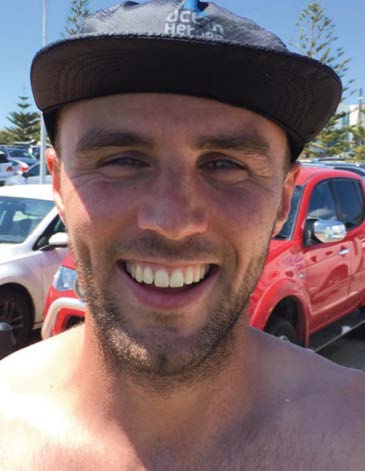
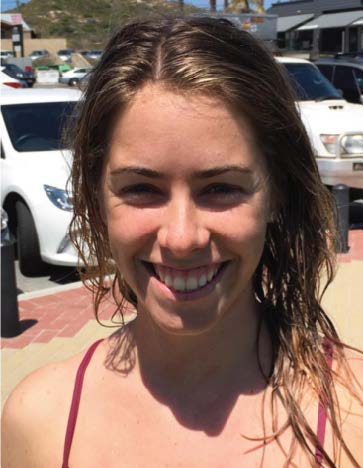
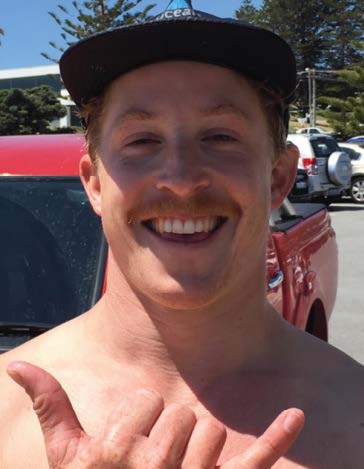
DREAM TEAM: (Left to right) Hallam, Hudson and Moyle. Over the last three years, they have served 700-800 autistic kids via over 30 events. They have even expanded from Perth to include other parts of Western Australia. "Surfing's a really selfish sport. This way we give back," says Moyle.
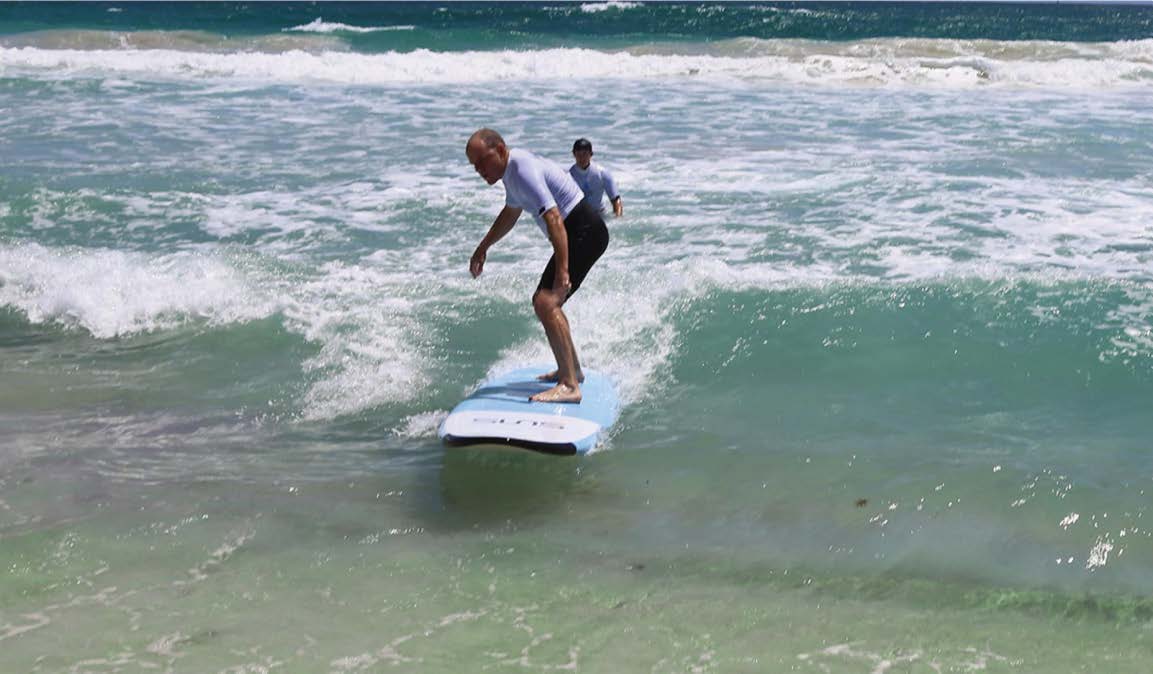
SITTIN' ON TOP OF THE WORLD: "I've actually gotten to try surfing in some gorgeous spots. Despite instruction to the contrary, I still grab inappropriate-sized boards for my skill level, and head for the big waves, hoping to hit the lottery. I once half-joked to my wife that it was nice to know how I was going to meet my maker."
These wonderful people all over the world – not just my three heroes – aren't inherently better than you or I, nor are they better than anyone who "gives back" in whatever manner. They too have great diversity in educational opportunities, culture, politics, economics, and mental health – I would even bet that they have just as many relationships end as all of us. But I'd also bet that those aforementioned breakups are implemented with far more emotional health than what we usually muster. That's the ocean's influence on them. They are not "beautiful" by birthright. They have trusted/allowed the sea to change them, and so it is the sea that has made them that way.
The faith discovered will always resonate more than the faith inherited. But with surfing, the parallel, as a belief system, has one tricky nuance. When in need, we instinctively look above, yet this massive energy is not above you. It's something you feel underneath you; a near Wiccan force (not too unlike George Lucas' fiction) that you have to respond to whether you believe it to contain that consciousness or not. The scriptures of major religions, while sometimes beautiful, can also reveal bigotry and make demands that con trast science, if not knowledge itself. The ocean, however, has made no such mistake.
Later, back on shore and exhausted (you are having too much fun to notice what a fantastic workout surfing is), you may hear the words "It's not worth it" regarding a present torment. Petty insecurities may have just disappeared and yet you don't know where they went. You are therein freed to question once-rigidlyheld, absolutist notions.
Take me for example: I'm normally someone who wants the kids he works with as a school consultant to always become grownups who understand what they have, and disclose their autism to others with confidence. Jane, though, through her suicidal tough spot, was able to say "I have autism," and yet it wasn't enough. And so I am hypocritically just fine that she has abandoned that introduction. These days, a happier Jane greets others with the words "I'm a surfer." •
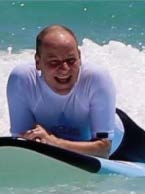
ABOUT THE AUTHOR: Michael John carley is the Founder of grasP, a school consultant, and the author of Asperger's From the Inside-Out (Penguin/Perigee 2008), Unemployed on the Autism Spectrum, (Jessica kingsley Publishers 2016), the upcoming Book of Happy, Positive, and Confident Sex for Adults on the Autism Spectrum… and Beyond!, and the column, "autism without Fear," which for four years ran with the huffington Post but is now ecstatic to be at home with sinkhole. dozens of past columns can be found at michaeljohncarley.com/index.php/articles.html. and for more information on Michael John, or to subscribe to his updates, you can go to michaeljohncarley.com